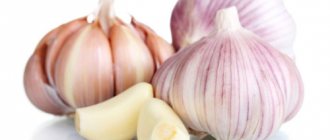According to the biblical story, the dove released by Noah after the Flood returned to the ark with an olive branch in its beak. Another legend associated with this tree, the authorship of which belongs to the ancient Greeks, has also survived to this day. Once upon a time, a dispute ensued between Athena and Poseidon about who would be the patron of one of the ancient Greek cities. Zeus suggested that each of the gods give a gift to the townspeople - whose name people would like more, the city would be named after him. Poseidon struck the ground with his trident, dried by the scorching sun, and a fountain appeared. But the joy of the townspeople quickly disappeared when they realized that salty sea water was gushing from the fountain, and they already had enough of it. Athena gave people an olive tree. The Hellenes were delighted with such a gift. The olive tree provided them with edible fruit, wood, medicine and oil. But the Egyptians were sure that humanity learned about the olive tree thanks to their goddess Isis, who brought the sprout of this plant to earth.
Olive story
Content:
- Olive story
- Types of olive oil
- Chemical composition
- Beneficial features
- Use in folk medicine
- Use in cosmetology
- How to choose the right one
- Some Caveats
It is difficult for researchers to say when and where olive trees were first “domesticated,” but both legends indicate that this plant has been known to people since very ancient times. Even during the Neolithic period, the peoples inhabiting the Mediterranean collected olives (and this is 8000 BC). Historians attribute the “cultivation” of olives to the inhabitants of Asia Minor, the Levantines or Mesopotamians. And this must have happened between 6000 and 3000. BC e.
The recipe for making olive oil has been known to mankind since at least 4500 BC. e. Historians suggest that already during this period, oil was made from olives in the territory of modern Israel. At one time, archaeologists came across an amazing find - an amphora with an olive product made around 3500 BC. e. Minoans. By the way, it is believed that this ancient civilization became rich thanks to olive oil, which was produced for export.
If you believe the ancient records, then in 1500 BC. e. Greece was the largest producer of the olive product. In ancient times, oil was squeezed out of olives by hand, so it was highly valued. The first presses for the production of this product date back to approximately 700 BC. e. At least, these are the most ancient presses that archaeologists have been able to find. More precisely, near Jerusalem, researchers discovered more than 100 such structures.
To say that in ancient times this product was highly valued is an understatement. The Greeks called it “liquid gold,” the Jews used a mixture based on olive oil in the coronation ceremony of kings, the Spartans rubbed this product into the skin to make it soft and emphasize their physical characteristics, and in the Roman Empire this product was even used as an offering to the emperor.
It was the ancient Romans who developed the screw press to produce olive oil, a technology that is still used in some regions today.
Nowadays, the best producers of olive oil are Italy, Spain, Greece, Turkey, Portugal, Morocco and American California.
Types of olive oil
Probably, many have noticed different inscriptions on bottles of olive oil, such as extra-virgin olive oil, virgin olive oil and others. It's time to find out what these phrases mean.
According to the international classification, the following types of oil are distinguished [1]:
- extra-virgin olive oil;
- virgin olive oil;
- ordinary virgin olive oil;
- refined olive oil;
- olive pomace oil;
- lampante olive oil.
Extra-virgin olive oil
It is considered the highest quality, tastiest and healthiest of all varieties. It is recommended to use it for dressing salads, but it is not suitable for frying. Produced exclusively mechanically (using extrusion or centrifugation). The acidity of this oil is no more than 0.8% (by the way, the lower this figure, the better). This type of oil contains the most polyphenols, which have antioxidant properties. The product is easily recognized by its deeper color and pronounced aroma.
Virgin olive oil
It is also produced mechanically, but most often lower quality raw materials are used, so sometimes it has a bitter taste. Acidity can reach 2%.
Ordinary virgin olive oil
Very reminiscent of Virgin olive oil. The main difference is the acidity of the product, which can reach 3.3%.
Refined olive oil
Unlike virgin oils, chemical processing is also used during the production process. The percentage of acidity and pronounced taste inherent in Virgin oils are neutralized using filters (for example, carbon, chemical or others). The acidity of such a product, as a rule, does not exceed 0.3%. A product labeled as "pure olive oil" or simply "olive oil" is usually refined, sometimes with a small addition of Virgin (purely for taste, since pure refined oil is tasteless and odorless).
Olive pomace oil
Although this type is similar to a refined product, it is still made from a different raw material - cake left over from Virgin production. The advantage of this variety is that it is great for cooking as it can be exposed to high temperatures without changes to the chemical formula.
Lampante olive oil
Not suitable for human consumption. Typically, this is a low quality oil intended for industrial use. The name Lampante is translated from Italian as “lamp”, that is, suitable for oil lamps. Meanwhile, this type of oil can be made edible by refining it.
In addition, on the label you can see the inscription “cold pressed” or “cold extraction”. It indicates that the product was not heated during the manufacturing process. More precisely, its temperature did not exceed 27 °C.
Why in the morning
The oil is drunk on an empty stomach, before breakfast. It is helpful to drink some water shortly before your appointment. The fact is that it is in the morning and on an empty stomach that the human body absorbs food better, so in this case the benefits of the oil will be maximum. Some people find that taking the oil in the morning helps perk them up, and if it is used as a stomach remedy, the absence of other food will help have an effect.
Chemical composition
Olive oil is one of the healthiest foods. It consists mainly of monounsaturated fats, vitamins A, and, polyphenols and some other nutrients. It is believed that one of the main components that gives the olive product its healing properties is oleic acid (omega-9). It is this substance, as scientific research shows, that is extremely useful for lowering cholesterol, improving appetite, speeding up metabolism, and even preventing cancer [2]. Linoleic acid, also contained in the product, gives the oil the ability to accelerate wound healing, maintain muscle tone, improve vision, coordination, and psycho-emotional state. In addition to the named components, the product contains palmitic, stearic and linolenic fatty acids. The green tint of the product indicates the presence of chlorophyll in it. Carotenoids and pheophytin can also affect the color of the product.
Beneficial features
Hippocrates knew about the benefits of olive oil for human health, who called this product “the great healer” [3]. Modern researchers also say that olive oil is unrivaled when it comes to health benefits. Below we will talk about the most important advantages of this product.
Reduces the risk of developing diabetes
Fatty foods have long been thought to be a contributing factor in the development of type 2 diabetes and heart disease. But in fact, the problem is not so much in the quantity as in the variety of fats consumed. Moreover, today it is already known that a diet rich in monounsaturated fats (found in olive oil, nuts, seeds), on the contrary, helps prevent many chronic diseases. Current scientific evidence confirms that a Mediterranean diet rich in olive products helps prevent the development of type 2 diabetes [4].
Prevents stroke
Older adults who consume olive oil daily may protect themselves from stroke. This is what researchers from France say [5]. For five years they studied the health status of more than 7.5 thousand people over 65 years of age. All participants in the experiment were divided into three groups depending on the portions of olive oil consumption. After five years, people who ate little to no olive oil were found to be 41% more likely to have a stroke than those who ate olive oil.
Supports youthful heart and blood vessels
It is a well-known fact that with age, the heart, like the arteries, begins to age, and this is manifested by various cardiac diseases. But not so long ago, Spanish scientists discovered that a diet rich in olive oil helps slow down the aging of the heart and blood vessels [6]. Monounsaturated fatty acids have been shown to have a beneficial effect on arteries in older people. In particular, this occurs due to the improvement of the condition of the endothelium (a special layer on the inner walls of the arteries that improves blood circulation through the vessels).
Prevents osteoporosis
Osteoporosis is manifested by thinning of bone tissue, as a result of which it becomes very fragile, prone to frequent fractures (even from light blows). But scientists have discovered that olive oil contains substances that affect bone thickness. In particular, we are talking about calcium, iron, sodium and potassium - minerals important for maintaining tissue density. Of course, this product is far from a key component in the fight against the disease, but it will not hurt as an additional tool in complex therapy.
Reduces the risk of developing Alzheimer's disease
Numerous studies indicate that this product is beneficial in preventing Alzheimer's disease and improving cognitive function [7]. And all thanks to polyphenols, which have powerful antioxidant properties and slow down oxidative processes in the body, which, in fact, are the main cause of aging.
Protects against depression
According to Spanish researchers, a diet rich in olive oil may protect against mental disorders [8]. This six-year experiment involved more than 12 thousand volunteers who consumed olive oil in different quantities. As a result, it turned out that people who frequently use this product are 48% less likely to develop depression than other participants in the experiment. And by the way, this is not the first time it has been confirmed that the Mediterranean diet helps improve emotional well-being. Fish, fresh vegetables and fruits, which are also traditional components of the diet, have a similar effect on the psyche.
Helps prevent cancer
Consuming olive oil can prevent malignant cell degeneration and also slow down the spread of cancer. In particular, the product has been proven to have a beneficial effect on melanoma [9]. Researchers explain this fact by the ability of the oil to resist the oxidative effects of the sun. Researchers say that in Mediterranean countries only three out of 100 thousand people suffer from skin cancer, while in Australia, for example, the figure is 50 people per 100 thousand. Additionally, olive oil is considered a beneficial food for preventing breast cancer.
How to cure gastritis: regimen, water and olive oil on an empty stomach. Interesting experience
I would like to share a little experience! For 2 years I suffered from gastritis. I took a lot of pills, went to doctors, followed a diet (which I still do, but not so strictly). I haven’t tried anything. But there was no significant improvement, the pain went away for a while.
But I found a way to treat it. The regimen is a lot of water and a spoon of good olive oil in the morning on an empty stomach. So, let's look at it piece by piece.
Mode
It is very important to follow a dietary regime and never be hungry. But, nevertheless, I would highlight 2 things as the main ones in my regime: breakfast and dinner.
Breakfast is the main meal of the day and should be included. After sleep, your stomach is empty and needs to be filled. It constantly receives bile to digest food, and if there is no food, the bile will begin to break down the stomach. It is desirable that it be porridge, such as oatmeal or buckwheat. Such cereals are easily digestible and saturate the body well.
Dinner should be no later than 3 hours before bedtime so that the food is digested. It is very important that your stomach is practically empty at bedtime, since in a lying position, digested food does not go into the esophagus and begins to decompose in the stomach. Dinner should be light.
A 20-minute walk after dinner will speed up digestion and will simply be beneficial.
Much water
One of the problems that cause gastritis is thick bile and it needs to be thinned. And the best way to liquefy it is water . Everyone knows that they need to drink enough water, but not everyone can bring themselves to do it. I also encountered this problem and the solution for me was a bottle that I placed near my workplace, and it always reminded me that I needed to drink . As motivation or call to action.
I have been following a diet and drinking enough water for a long time, and I had improvements from this, but I could not afford to break my diet, and pain appeared periodically. One day I found out that olive oil can help cure gastritis. I decided to try drinking it in the morning on an empty stomach. Before this, I tried drinking kyzylmai oil, but it was too extreme for me. I started drinking a teaspoon of olive oil a day and eventually switched to a tablespoon. After the first week I felt improvements. The pain went away and my mood improved.
Out of habit, the oil seemed bitter for the first week and it hurt my throat, but after that I got used to it and didn’t feel it anymore.
Use in folk medicine
There are hundreds of recipes for using olives and products made from them as herbal medicine for various diseases. We have selected the most popular ones.
For cholelithiasis
Olive oil is considered to be one of the best natural cures for gallstone disease. To get rid of bile stagnation, you will need to take half a liter of olive oil and freshly squeezed lemon juice. During the day, you should take 4 tbsp every 15 minutes. l. butter and 1 tbsp. l. juice When all the oil is gone, drink up the remaining juice.
In addition, to dissolve gallstones, traditional healers advise drinking a mixture of the same products before bed: lemon juice and olive oil, taken in half a glass. At night, place a warm heating pad under your right side. To enhance the effectiveness of treatment, it is advisable to do a cleansing enema in the morning and evening.
For stomach ulcers
To treat this disease, it is recommended to drink a mixture of aloe juice and olive oil, taken one glass each, with the addition of a tablespoon of honey. The product is infused for two days, then taken one tablespoon half an hour before meals. To improve the effect on an empty stomach, it is useful to drink a tablespoon of olive oil.
For liver diseases
The oil is also useful for cleansing the liver. This treatment course lasts three days. During the first two days you will have to drink only freshly squeezed apple juice. On the third day you should also drink this drink, but only until 19:00. In the evening you should drink 3 tbsp. l. warm olive oil and 1 tbsp. l. lemon juice, then apply a heating pad to the liver, after which the juice and oil in the same proportions continue to be taken every 15 minutes. In total, you need to drink 300 ml of oil and the same amount of juice.
For periodontitis
Olives will also help in the treatment of periodontitis. To do this, mix 1 tbsp. l. olive oil and celandine tincture (30 percent). The resulting product is used to treat sore gums three times a day.
For vascular fragility
To strengthen blood vessels, it is useful to take garlic oil prepared from a glass of olive product and pulp from a head of garlic. It is recommended to drink this product one teaspoon at a time, adding the same amount of lemon juice to it. The treatment course lasts a month.
There are many more folk recipes using olive oil. But in any case, self-medication with this product without consulting a doctor is strictly prohibited, since in some cases the oil can aggravate existing diseases.
Olive oil may also be beneficial in the following cases:
- removal of toxins;
- prevention of atherosclerosis;
- treatment of hemorrhoids;
- prevention of caries and tartar;
- improvement of lactation;
- during pregnancy;
- slowing down aging.
Therapist on the benefits of olive oil
Today our guest is an experienced therapist Galina Smekalova and she told us how adding olive oil to the diet affects the process of healing the body and getting rid of extra pounds.
-Galina, hello! For several years now we have been selling Greek olive oil and other healthy products...
-Hello! It's great that you offer a quality fresh product. After all, now, unfortunately, there are so many completely useless products on the shelves.
-Yes, we monitor quality, taste and check each product, and monitor certification for safety of use. After all, if olive oil is of poor quality, then it will not bring any benefit. Speaking of benefits: please tell us about the most interesting healing properties of olive oil - high-quality, of course.
— Hippocrates confirmed the beneficial properties of olive oil and created several treatment methods using olive oil, finding in olive oil one of the best helpers for humans.
It contains almost all the vitamins and microelements necessary for humans, which are well absorbed by the human body. Olive oil has an ideal formula for vegetable oil: a maximum of monounsaturated, easily broken down fats and a minimum of solid, saturated fats.
First of all, olive oil is a record holder for reducing cholesterol and triglycerides in the blood due to its high content of linoleic acid, which prevents and can cure atherosclerosis and cardiovascular diseases, especially heart attacks and strokes. The ability of olive oil to cleanse blood vessels is explained by its content of biologically active carbohydrates, sterols, terpene disalcohols and tocopherol.
— Can older people consume olive oil?
We often tell our patients at risk about a sensational study by French scientists that found that olive oil halved the risk of stroke in older people. Experts from the University of Bordeaux studied the medical records of almost 8 thousand people from three French cities aged 65 years and above. None of the participants had previously suffered a stroke. Scientists observed them for five years. As a result, it turned out that people who regularly use olive oil in food (cooking with it, seasoning soups and salads with it, or even spreading it on bread instead of butter) had a reduced risk of developing stroke by as much as 41% compared to those who I didn't use it!
The beneficial acids contained in olive oil are necessary as building materials for cell membranes - the body itself synthesizes them only partially. In this regard, olive oil is especially useful for children, as it stimulates the growth of bone tissue.
Olive oil also helps normalize blood pressure due to the antioxidant polyphenol contained in olive oil, which is the main source of lowering systolic and diastolic blood pressure.
— What is the daily intake of olive oil for improving the health of the body?
To achieve a therapeutic effect, I would advise men to take four tablespoons per day, women - three tablespoons.
— Tell us a little about the therapeutic effect. What do the doctor's say?
Olive oil has the ability to control blood sugar levels, especially reducing glucose levels. People suffering from diabetes and at risk of this disease are forced to follow diets. Diabetics switch to high-fat, sugar-free diets, getting their fats primarily from olive oil.
Additionally, extra virgin olive oil contains an anti-inflammatory ingredient called oleocanthal. Oleocanthal has an analgesic effect similar to that of aspirin. Oleocanthal does not have immediate effectiveness, but can relieve pain with long-term use. In general, it is worth noting that olive oil is extremely useful for any inflammation in the body: from sore throat and gum disease to thrombophlebitis or, say, sexually transmitted infections.
The monounsaturated fats found in olive oil can even reduce the risk of cancer, which has become the number one cause of death worldwide. Oleic acid reduces the effect of cancer-causing genes, also called oncogenes. Olive oil has a positive effect on the mammary glands, prostate and is very protective against colon cancer.
— Olive oil for pregnant women – is there any benefit?
I advise pregnant and nursing mothers to include olive oil in their diet; due to its high content of monounsaturated fatty acids, it promotes proper growth of the brain and nervous system of children before and after birth. Interestingly, the fatty acids contained in olive oil are strikingly similar to the fats found in breast milk.
-When we hear how many beneficial substances olive oil contains, to be honest, we never cease to be amazed. The oil probably has the most noticeable effect on the gastrointestinal tract.
— Olive oil, as I already said, has powerful anti-inflammatory and healing properties - which is why many patients managed to recover from such a serious illness as a duodenal ulcer without resorting to drug treatment.
This product is generally very useful for the digestive system and for diseases of the gastrointestinal tract. Olive oil improves the activity of the stomach, intestines, pancreas and liver, and, as you have seen for yourself, promotes the healing of stomach and duodenal ulcers.
In addition, olive oil has a mild laxative effect. For those who suffer from constipation and irregular bowel movements, it is good to drink a teaspoon of oil in the morning on an empty stomach.
I also recommend consuming olive oil to treat hemorrhoids - remember its ability to reduce inflammation and regenerate tissue.
In addition, olive oil has choleretic properties, so its regular use will help with cholelithiasis or removed gallbladder. By regularly consuming olive oil, you can achieve excellent results and reduce the intake of medications. But I would like to warn those who suffer from enterocolitis and cholecystitis: these are the only contraindications to the use of olive oil, since olive, I repeat, has choleretic properties.
In general, if you eat right, regularly consume high-quality olive oil and don’t get nervous over trifles, then I can say with confidence that practically no gastrointestinal diseases will threaten you. Do not lead yourself to serious conditions with your lifestyle and diet that require radical medical and surgical interventions - this is in your hands.
- Yes, the main thing is not to give yourself an ulcer... But the rhythm of life in big cities dictates its own rules! And the environment here is very bad, and the water from the tap is too hard and dries the skin terribly, and the hair stops shining. Can olive oil help us eliminate skin and hair problems?
-Certainly! Olive oil is a unique assistant in this matter. It is suitable for absolutely all skin and hair types!
It can moisturize dehydrated skin, because olive contains a large amount of squapene - this is worth taking note of for those who suffer from dry skin and coarse hair caused by washing with chlorinated water.
Olive oil also has rejuvenating properties: it prevents the aging of skin cells, smooths out wrinkles and prevents their appearance due to antioxidants, in particular vitamin E, which neutralizes the effects of free radicals, which cause the skin to fade faster and wrinkles to appear. Vitamins A and D contained in the oil are involved in the renewal of the epidermis, reduce the number of keratinized skin particles and protect against environmental pollution, and carotene protects against exposure to ultraviolet rays.
Antioxidants contained in olive oil accelerate the removal of harmful substances from the skin and improve the secretion of glands. Olive oil is also recommended for problem skin - it does not clog pores, and also has bactericidal properties.
-We can’t wait to ask an important question that worries our customers: is it possible to lose weight by consuming olive oil?
-Olive oil is a dietary product. Everyone knows the so-called “Mediterranean diet”. One of the key elements of such a diet is the inclusion of a very large amount of olive oil in the diet - during such a diet, olive oil and fish are the only sources of fat, which is also necessary for the body, which should not be forgotten when trying to lose weight.
It is thanks to the high content of oleic acid, which has a very beneficial effect on the processes of absorption and processing of fats, that olive oil is classified as a dietary product.
Unsaturated fatty acids, which olive oil is rich in, reduce glycemic levels, which is an indirect factor in obesity; in addition, they create a long-lasting feeling of fullness, which will protect you from the desire to quickly snack. Oleic acid interacts directly with the cells of the intestinal mucosa and triggers the production of oleilethanolamide, a substance that signals to the brain that the body no longer requires food. Thus, olive oil serves as a natural appetite controller.
Are you asking me if you can lose weight by eating olive oil? This is indeed an effective remedy, provided that the product is regularly consumed on an empty stomach, one tablespoon twice a day, 30 minutes before meals. I advise you to stick to this diet for 1 month, then take a break. If you do not change your lifestyle, you can lose up to 5 kg. But keep in mind that if you add physical activity and slightly limit yourself in the amount of food you eat, the scales will show a much more impressive result.
-Thank you for such interesting information! What final advice would you give to our clients?
We are now trying to look younger than our age and are taking extra care of our health - this is a great trend. But often this is expressed in the uncontrolled absorption of medications, torturing one’s own body with strict diets and starvation - all this results in depression and additional problems with health and life in general. Don't torture yourself! Nature has given us many unique, delicious products that are designed to help us not only look younger and stay healthy for many years, but also maintain a cheerful disposition and the ability to give others a good mood. Make some friends and let the best one be olive oil.
Use in cosmetology
Since ancient times, olive oil has been used as a cosmetic product beneficial for skin, hair and nails. Thanks to the presence of unique substances in its composition, this product cleanses, moisturizes and smoothes out fine wrinkles, and also relieves inflammation on the skin. The phenols contained in the composition slow down skin aging, making it smooth and soft.
For hair, olive oil is a source of vitamins and healthy fats, which are responsible for the shine and healthy appearance of curls. Masks based on this product are useful for all hair types.
This product is no less valuable for nails. Weak, peeling, dull and unsightly colored nails can be restored to a healthy appearance by regularly rubbing a little warm olive oil mixed with a few drops of lemon juice into the cuticles and nail plates.
How to choose the right one
And although today no one equates olive oil in price to gold, it still costs a lot. And some manufacturers, taking advantage of the ignorance of gullible buyers, pass off cheaper varieties as Virgin or dilute the olive product with soybean, rapeseed oils or other substances.
When buying olive oil, it is impossible to be completely sure that the product is made exclusively from olives. Only laboratory assistants can accurately answer the question about the chemical composition. However, there are some clues that can help you understand a little more about the quality of the vessel's contents.
The most common, but not the most reliable way to check the oil is to put the container in the refrigerator. It is said that a real olive product should harden and become cloudy, since it, unlike many other vegetable oils, contains a lot of monounsaturated fats [10]. But this does not always work: certain types of olive oil may not thicken, and some mixtures behave like a pure olive product in the cold.
You should also not believe that all oils with a green tint are olive oils. First, not all olive oils are greenish. Secondly, do not forget about the dyes that are present in fakes. It is better to pay attention to the characteristic taste and aroma of the product. To do this, pour the oil into a small glass and heat it a little in your hand. Real Spanish or California olive oil should be golden or yellow in color with a fruity and nutty flavor. A fresh Italian product – green to dark green in color with a characteristic herbaceous aroma. But a smell reminiscent of hay, cardboard, vinegar, dirt or mold, in any case, indicates that it is time to throw away the product.
The label of a quality product usually contains information about the type of oil, the types of olives used, where they were grown, when they were harvested, and there must also be certification. It is also important to choose an oil that comes in a dark bottle, as exposure to light will give the product a bitter taste. The optimal storage temperature is 14 °C, although you can keep the bottle at room temperature, but away from the stove or other heat sources. So when buying oil, take a closer look at where they keep it in the store. And of course, purchasing a cheap product is not a good idea. The quality of such oil will most likely be poor.
How to use oil correctly
There are several options for using oil correctly. It is usually recommended to mix it with a glass of warm water to make drinking more comfortable, and add honey to improve the taste. There are rules to make taking olive oil on an empty stomach more beneficial.
The duration of the course is several weeks.
The course of treatment usually lasts several weeks, and skipping drinks during these days is not recommended. You can then take a break and repeat it if necessary.
More doesn't mean better.
Consuming too much oil will only make things worse, so the dose should be calculated with caution: usually the morning dose includes no more than one tablespoon.
Not all oils are equally beneficial.
It is worth choosing an exclusively cold-pressed product stored in a dark bottle: this way, more beneficial properties are preserved. Do not store the oil for too long. Prolonged contact with air deteriorates its quality and reduces its value, which is why it is recommended not to purchase oil in large bottles.
Don't forget about contraindications.
There are contraindications for which it is not recommended to take olive oil. Diseases of the stomach, intestines, liver, and gall bladder require prior consultation with a doctor before starting use: the oil may affect their course, and it is worth talking about this with a specialist in advance.
If taken correctly, results can be noticeable within a few days. However, we should not forget that this is a preventive and health-improving agent, not a medicine, and you should not refuse medications prescribed by your doctor in favor of oil.











